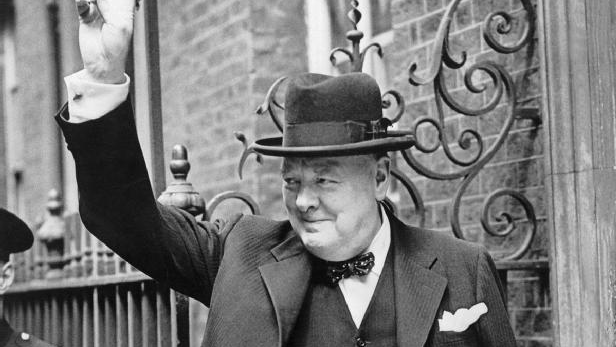History of the Homburg Hat: Everything You’ve Wanted To Know
Although not quite as well-known as its cousin the Fedora, the Homburg is one of modern history’s most iconic hat styles. Since the 1890s this hat shape has found its...
Although not quite as well-known as its cousin the Fedora, the Homburg is one of modern history’s most iconic hat styles. Since the 1890s this hat shape has found its...


Although not quite as well-known as its cousin the Fedora, the Homburg is one of modern history’s most iconic hat styles. Since the 1890s this hat shape has found its way into the wardrobes of many classic and sophisticated gentlemen.
Join us as we travel back in time to cover the origins of the Homburg hat and how it became one of the most popular hat styles from the swinging sixties. We’ll also discuss how the style has evolved throughout the years in both shape and size.
It’s said that Edward VII in 1882 helped to popularize the Homburg when he returned home from the town of Bad Homburg in Hesse, Germany sporting a hat with an upturned brim and a tall, rounded top.
Bad Homburg (the town) was known in-part for its historic avante-garde hat factory Möckel where it’s likely that the King ordered this fashionable hat and helped to make a centuries-long fashion statement.
However, there are also some other speculations as to how the Homburg hat made its way to fashion. Some believe that the Homburg hat is actually a copy of the Panama Hat, which would place its origins in Ecuador, while others believe Italy was the birthplace of the hat now affectionately known as “The Godfather”.
In any case, the Homburg’s influence in the world of business, politics, and fashion can’t be denied.
Möckel is a hat factory established in Bad Homburg in 1806 by Johann Georg Möckel, who came from a longstanding hat-making family. His son was interested in traveling and machinery, which resulted in his constant discovery of new machines at the exhibitions of the era.
Thanks to his knowledge and understanding of machines and trends, Möckel has always been up-to-date in fashion and hat-making, and so it is no surprise that they were the first company in Bad Homburg to use a steam engine in 1856.
The company had 100 employees by 1890 and exported their high-quality hats to various countries. The company emblem used to be a dove with a hat in its beak, symbolizing the lightweight nature of its finished product.
While Möckel continued to expand in the 1920s, the global economic crisis in 1929 forced the business to cease operations on December 31, 1931. Despite it, the Homburg hat still became a trendy choice among men in town.
We commonly know the Homburg hat as a dressier version of its cousin, the fedora, but what makes it unique? And, most importantly, what influential figures wore this style on the largest stages, helping to solidify its place in the dress-hat Hall of Fame?
The first thing you should know is that the Homburg was a slightly hard-soft felt hat with a narrow crown and rolled bound-edge trim band. It was commonly used when people went for walks or boat rides. For a long time, Homburg hats were connected to formality and were almost exclusively grey in color.

In the 1950s, it surpassed the popularity of a top hat and a bowler hat, thus becoming a formal daywear hat. By this time, more color options had become available for Homburgs, with black felt becoming the standard colorway for formal occasions. Incredibly influential world leaders have been recorded sporting this look on the largest stages. President Dwight D. Eisenhower famously wore one during his presidential Inauguration, while British Prime Minister Winston Churchill often wore one in public, further heightening the Homburg’s popularity.

After some time, Homburg’s popularity waned as the 20th century entered the picture, but famous celebrity Al Pacino rebirthed the popularity of Homburg hat styles by wearing it on “The Godfather”. Since then, the Homburg hat was called the “Godfather hat”.
Here are some of the hats that almost look identical to Homburg:
While it’s pretty rare to see people wearing this classic piece on the streets, it is worth noting that the Homburg hat has undoubtedly left an elegant and sophisticated mark on fashion trends and hat-making throughout the years. Shop for a homburg hat today if you want to look as dapper as these gentlemen did in their era!